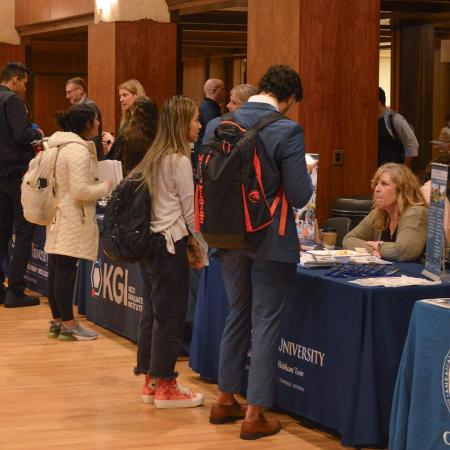Wieman has received numerous awards recognizing his work in atomic physics, including the Nobel Prize in physics in 2001 for the first creation of a Bose-Einstein condensate. He has also studied student learning and problem solving and the comparative effectiveness of different methods for teaching science.
Guided by experimental tests of theory and practice, science has advanced rapidly in the past 500 years. Guided primarily by tradition and dogma, science education meanwhile has remained largely medieval, according to Wieman. He presented research on how people learn that is now revealing much more effective ways to teach and evaluate learning than what is currently used in the traditional science class. This approach makes much more use in the classroom of the instructor’s expertise, and, contends Wieman, it also shows students how to learn most effectively.
In his talk, Wieman discussed research that is setting the stage for a new approach to teaching and learning that can provide the relevant and effective science education for all students that is needed for the 21st century. He also covered more meaningful and effective ways to measure the quality of teaching.
Although the talk focused on undergraduate science and engineering teaching, where the data is the most compelling, Wieman believes that the underlying principles come from studies of the general development of expertise and apply widely.
Wieman’s education work has been recognized with a number of awards, including the Carnegie Foundation University Professor of the Year in 2004, the Oersted Medal for physics education, and a lifetime achievement award from the National Science Teachers Association.
Wieman served as founding chair of the Board of Science Education of the National Academy of Sciences and was the founder of PhET, which provides online interactive simulations that are used 100 million times per year to learn science. He directed the science education initiatives at the Universities of Colorado and British Columbia that carried out large-scale change in teaching methods across university science departments. Wieman served as Associate Director for Science in the Office of Science and Technology Policy in the White House from 2010-12.





